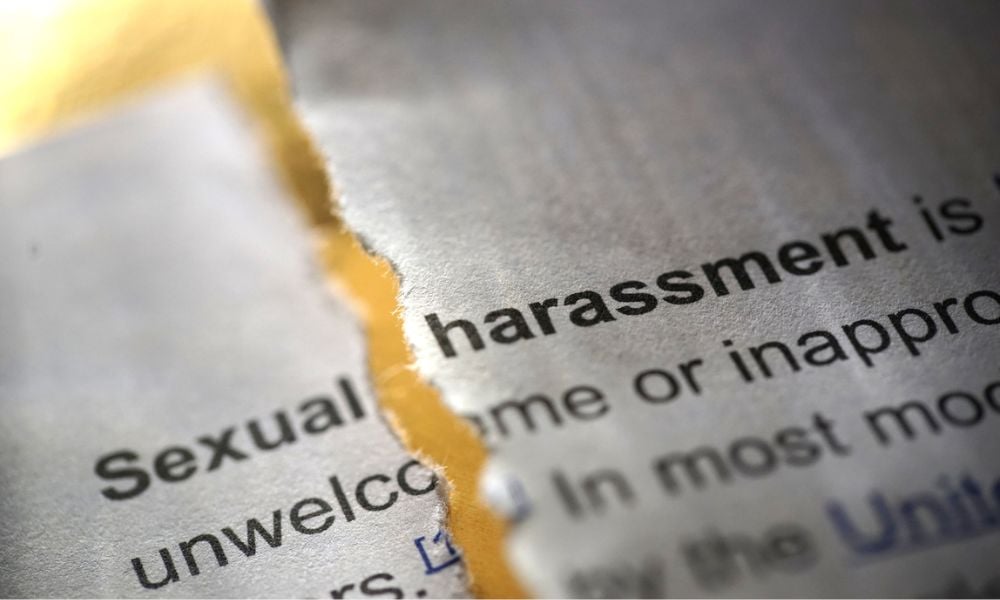Industry has had to rethink how it defines safety culture, says EllisDon VP

Canadian construction giant EllisDon has partnered with WomanACT and The Society for Canadian Women in Science & Technology (SCWIST) to help empower employees to prevent and respond to gender-based violence. WomanACT has also partnered with firms Chandos Construction and TandemLaunch.
The aim of the partnership is to advance the safety of women in an industry which remains largely male-dominated. EllisDon has always had a very strict policy around zero tolerance for any form of discrimination and harassment, says Jennifer Khan, Vice President – Inclusive Diversity, EllisDon Corporation.
“Discrimination and sexual harassment is a safety issue. I think that in the last few years, we’ve really had to rethink how we’ve defined safety and safety culture within the industry,” says Khan. “To say that sexual harassment is not a safety issue is completely false. Of course it is.”
“What I’m starting to see is the evolution of safety to be more encompassing of both emotional and psychological safety. Because if you don’t have those – whether it’s because of something that happened inside or outside of the workplace – it can impact your physical safety. says Khan.
Micro-aggressions can build up over time to create an overwhelming psychological (and physical) risk. More often than not, women experience a form of harassment at work and opt not to do or say anything about it. “It is like a continuous papercut […] Over time that continuous cut builds up, affecting your ability to work,” says Daniela Xavier, Corporate Health, Safety and Environmental Coordinator. Xavier is also a National Construction Safety Officer (NCSO).
She says that harassment “breaks you down and makes you feel unsafe and not respected.”
Over the last few years, EllisDon has been working to improve its inclusivity. “In 2020, we took a review of all of our policies and procedures to make sure that they were up to par,” says Khan. With the help of WomanACT, we will review them again specifically through the lens of women and sexual harassment and complete a climate assessment, to better understand how women at the organization feel on the site level.
EllisDon created 2gether, a volunteer organization within the company that “supports and encourages inclusivity,” says Xavier.
Now, the organization is partnering with WomanACT and SCWIST to go a step further. “The partnership was quite natural,” says Khan, and it is part of their continued efforts to actually make a difference for women in the company rather than just empty performative gestures.
“It was a very easy decision. It solidifies what we are working for every day at EllisDon, inclusivity,” says Xavier. “There are women joining the trades every single day but, we need to ensure that with those changes comes the additional tools to support them.”
And part of the problem is actually convincing those in the industry that sexual harassment is very much an issue.
“I think that the industry itself needs to recognize and acknowledge that there is a problem, that women on [work] sites may not feel safe for a number of reasons – whether it’s because they have consistently been exposed to discrimination or for other reasons,” says Khan.
Khan says that the industry also needs to actually innovate to be able to really make women feel safe. “We need to make sure that we have the policies and practices, the reporting systems, the PPE in place, so that women actually feel like organizations are behind them and are prioritizing their safety.”
This will take investment and research, and conversations with women on sites to get their input. “We can’t let people who don’t actually experience what the group experiences to be making decisions for [them]. Women need to be at the table when designing the systems, and the system checks that are meant to support and empower them.”
There also needs to be accountability around these policies and practices, so that they have weight and power behind them. “It has to have teeth behind it,” says Khan, so that people know that there are real consequences to unsafe behaviours.
“Through conversations with other women in the industry, they are no strangers to this topic. Many have experienced some form of harassment from comments, being stared at, to even being approached. It is unacceptable,” says Xavier.





